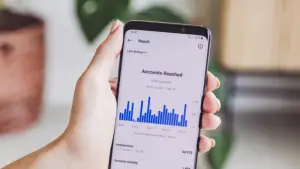The goal of nonprofit organisations is to drive change in their local and/or national communities. But because impact can’t always be measured by quantitative data, how do organisations know if their efforts are accomplishing anything? For any other organisation, measuring success is probably as simple as measuring revenue, profit, or staff turnover (just to name a few), but for nonprofits, it simply isn’t that easy.
The demand for reporting on outcomes usually comes from donors and grantors who like to know that their investments are making a difference. Effectively reporting on outcomes can attract more donors and grantors, so what are the benefits of focusing on outcomes? And can these outcomes be measured?
Knowing what’s effective
Knowing what areas are effective means that your organisation can focus most of their resources in this area. This is especially important if cuts or restructures are being made from funding sources, but knowing what areas to focus on can be a challenge. The best way to understand what’s performing is to use a framework that has targets and measures integrated so that progress can be measured against achieving them. Tracking and logging performance without using a system can be a lengthy process, so having software to which you can create your own framework for and share with your team will save you a huge amount of time. Having software that can track an organisations performance against their complex strategic aims is even more of a bonus.
Information requests
There are many different stakeholders that may ask for reports on performance including institutions and even Governments. Doing so is a challenging task and proving what time has put into each area is no easy feat. The nonprofit sector has experienced a movement of which those who can’t provide such information can almost surely be left behind. There has also been recent research by ‘the balance small business’ suggesting that an organisations effectiveness is the primary aspect of which donors are interested in, so being unable to provide a report on effectiveness will only set organisations back. It will only be a matter of time results and effectiveness will be the standard by which nonprofits are evaluated by.
So how can nonprofits track their outcomes, effectiveness and efficiency to provide credible evidence to vendors?
Here at Katala, we understand the challenges that nonprofits face, which is why we created a new CRM software to tackle all of the challenges mentioned above, exclusively for non-profits. Katala is already used by Active Partnerships to track their progress against their strategic aims. Having all of their work and data on one software means that all of their members have access to vital information when they may need it.


